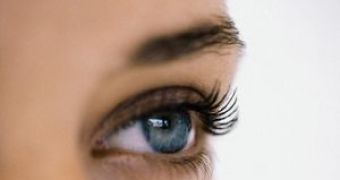Scientists in Scotland are developing a new technological method in order to restore eye sight of thousands of people that suffer from blindness. The technology of creating the "bionic" eye resembles the one found in digital cameras: an inconspicuous device will be introduced in the eyes of the blind in order to stimulate the retina and "fool" the brain that the eye is still working.
The mechanical retina is going to restore vision to more than a million British people that suffer from age-related macular degeneration and retinitis pigmentosa. The functioning principle of the new developed "bionic" eye is actually very simple: the device implanted in the no longer working eyes will translate light into electrical impulses and will stimulate the retina. The neuronal cells will receive the "messages" from the retina via the optical nerve and will consider it to be perfectly healthy. Therefore, the brain will help blind people using a prosthetic retina to see again.
Dr. Keith Mathieson, co-author of the research, from the Glasgow University described how the vision chip is going to work:
"Blindness is often caused by the light cells at the back of the eye dying off, but by implanting a microelectronic device into the eye, we hope we will be able to fool the brain into believing the retina, which converts light into signals that are sent to the brain, is still in working order. Advances in microelectronics have allowed us to develop a retinal prosthesis - a small device to be implanted on the retina itself. The device would contain an imaging detector with hundreds of pixels coupled to an array of microscopic stimulating electrodes. If light forms an image on the detector, then the result will be electrical stimulation of the retina in the shape of this image."
However, the tiny "digital camera" sized around 5 mm will not be able to restore vision completely, making the blind people see as perfectly as the healthy ones. But the artificial retina will provide enough vision so that the ones in whom it is implanted can go about with their daily lives with greater facility:"Around 500 pixels would allow people to walk down the street and recognize faces," Dr Mathieson stated.

 14 DAY TRIAL //
14 DAY TRIAL //